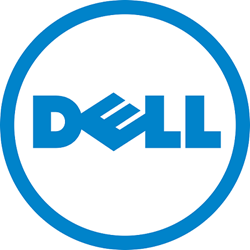Dell Minimizes Carbon Footprint With Company-Changing Sustainable Initiatives
By Megan Zielinski, contributing writer

Dell is taking major strides toward becoming an even more sustainable electronics retailer; the company will be the first in the IT industry to use carbon-negative packaging and the first to incorporate closed-loop recycled plastics in the assembly of computers.
In partnership with Newlight Technologies, Dell will introduce AirCarbon-based plastic packaging this fall — plastics made from air and greenhouse gases instead of commonly-used plastics made from fossil fuels. In 2012, the company developed its 3Cs packaging approach—reducing the size of packaging by 12 percent, increasing the amount of recycled and renewable materials by 40 percent, and confirming that 75 percent of packaging is recyclable at disposal. Dell’s previous packaging includes the use of bamboo, wheat straw, and other compostable natural elements, saving the company $18 million dollars and cutting out 20 million pounds of packaging from the landfill. The inclusion of AirCarbon packaging will guide the company even closer to their 2020 goal of converting to 100 percent earth-friendly packaging. Packaging sleeves surrounding the new Dell Latitude series notebooks will be the first AirCarbon-based packaging product, beginning in the U.S with plans to extend to Dell products and packaging globally in the future.
The Dell Optiplex 3030 All-in-One-desktop, available in June, will be the first computer for Dell to be designed with closed-loop recycled plastics through partnership with Wistron GreenTech, global producer of information and communication technology. Dell is the first of its industry to be repurposing e-waste into new life with the manufacturing of the new desktop. “This initiative is designed to reduce the dependence on natural resources, as well as extending the value of end-of-life electronics," said Simon Lin, Chairman and CEO of Wistron Corporation, during Fortune Brainstorm Green held in Laguna Niguel, CA. It will also make Dell the first company to receive third-party certification from UL Environment, verifying Dell topped the standard minimum of 10 percent of integrating closed-loop recycled plastics in the body of the new computers. “The content validation by UL Environment adds credibility and peace of mind for the purchasers and end users of Dell’s products, and highlights the company’s overall commitment to environmental stewardship,” said Lisa Meier, vice president and general manager of UL Environment. By recirculating plastics back into new electronics, Dell is reducing the amount of e-waste, saving resources, and decreasing carbon emissions by 11 percent. The company plans to further expand closed loop productions with renewable plastics as well as recycled metals and other materials, in effort to reach their 2020 goal of using 50 million pounds of recycled ecological components.
In 2012, the company developed the Dell 2020 Legacy of Good Plan, involving 21 strategic goals the company is determined to meet by 2020. With each long term sustainability goal, Dell is focusing on better the environment with resourceful packaging alternatives, energy efficiency, and e-recycling, encouraging customers to take advantage of their free recycling program, allowing retailers to recycle used Dell products in over 78 countries. The company is also committed to providing funds and technology to strengthen communities, and building strong relationships with Dell team members to enhance workflow.
“We are setting the bar high,” states Michael Dell, CEO. “By 2020, we expect to reduce the energy intensity of our product portfolio by 80 percent, use only packaging that is 100 percent compostable or recyclable, and rally our global workforce to give 5 million volunteer hours to the communities we call home — just to name a few.”
